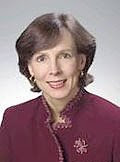The worldwide trade association representing the non-alcoholic beverage industry has agreed to implement the guidelines in all countries around the world by the end of 2008, the ICBA said.
The ICBA "Guidelines on Marketing to Children" state that beverage companies voluntarily agree to eliminate the advertising and marketing of a wide range of beverages, including carbonated soft drinks, to any audience comprised predominantly of children under 12. The policy applies to TV, radio, print, Internet, phone messaging and movies, including product placement.
 "The non-alcoholic beverage industry produces a wide variety of beverages, all of which can be part of a healthy lifestyle," Susan Neely (at right), president and CEO of the American Beverage Association, said in a press statement.
"The non-alcoholic beverage industry produces a wide variety of beverages, all of which can be part of a healthy lifestyle," Susan Neely (at right), president and CEO of the American Beverage Association, said in a press statement. "However, as parents and grandparents ourselves, we recognize that children may be more susceptible to marketing campaigns and may not always be able to make the right dietary choices for themselves.
"Parents are telling us they want to be the gatekeepers. We are listening and want to protect their role so that we can work together to help teach children around the world how to make more informed choices."
To Dowd's Spirits Notebook latest entry.
To Dowd's Wine Notebook latest entry.
To Dowd's Brews Notebook latest entry.
To Dowd's Non-Alcohol Drinks Notebook latest entry.
To Dowd's Tasting Notes latest entry.
Back to Dowd On Drinks home page.





